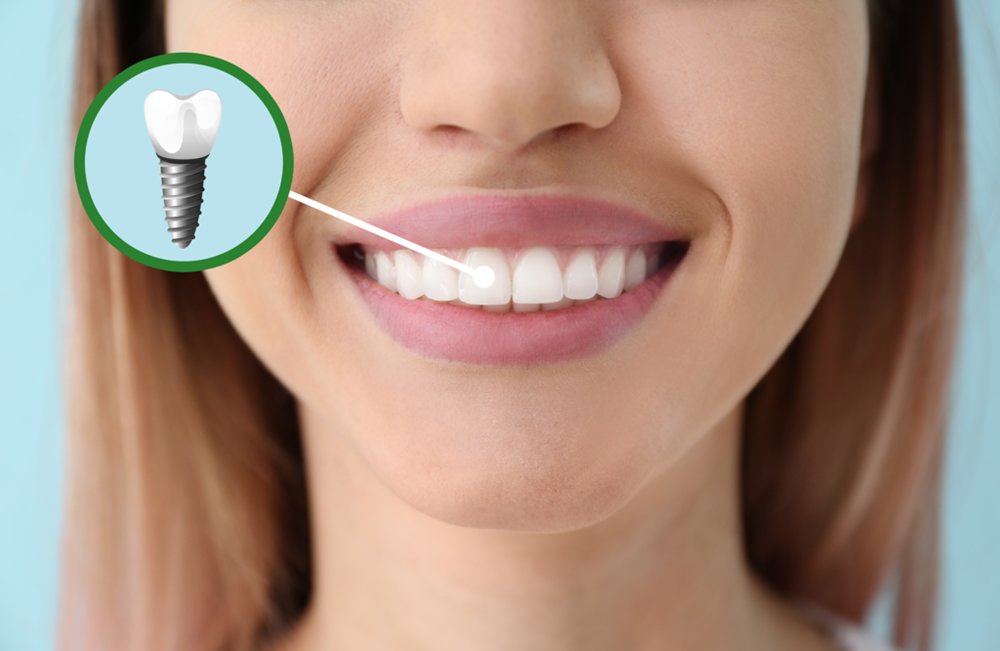When it comes to dental health, many people find themselves needing tooth extractions for various reasons. The loss of a tooth can affect your smile, chewing ability, and overall dental health.
If you had a tooth extracted two years ago, you might be wondering if it’s too late to get a dental implant. The good news is, it’s usually not too late! In this blog, we’ll explore the details of getting a dental implant near you two years after extraction and answer all the questions you might have.
What Are Dental Implants?
Dental implants, made from titanium, serve as artificial tooth roots implanted into the jawbone. They offer a solid base for either permanent or removable replacement teeth. Unlike dentures or bridges, dental implants are designed to fuse with your bone, making them a permanent solution for missing teeth.
Why Might You Delay Getting an Implant?
There are various reasons why someone might not get an implant immediately after a tooth extraction:
- Financial concerns: Dental implants can be expensive, and not everyone can afford the procedure right away.
- Health issues: Some health conditions or medications might necessitate delaying the implant process.
- Personal reasons: Life events, such as moving, changing jobs, or dealing with family matters, might delay dental treatments.
- Lack of information: Some people might not be aware of dental implants or their benefits until later.
Bone Loss: A Key Consideration
One of the main concerns with waiting to get an implant is bone loss. When a tooth is extracted, the jawbone in that area starts to deteriorate because it’s no longer stimulated by the tooth root. This bone loss can make implant placement more challenging over time.
Bone Grafting: What You Need to Know
Bone grafting is a procedure where new bone material is added to your jawbone. This can come from your own body (autograft), a donor (allograft), or synthetic materials. The graft helps to create a solid base for the implant.
The Implant Process 2 Years After Extraction
1. Consultation
When you visit an implant dental clinic your dentist will evaluate your oral health, discuss your medical history, and take X-rays or 3D scans to assess your bone structure.
2. Bone Grafting (if needed)
If you have significant bone loss, a graft might be necessary. This procedure will require additional healing time, typically a few months.
3. Implant Placement
Once your jawbone is ready, the implant is surgically placed. This requires local anesthesia and sometimes sedation.
4. Healing Period
After placement, the implant needs time to integrate with your bone. This can take several months.
5. Abutment and Crown Placement
Once the implant has fused with the bone, an abutment is placed by a dentist that do dental implants, with a custom-made crown.
Factors to Consider Before Getting Implants Two Years After Tooth Extraction
- Overall oral health
- Presence of gum disease
- Any medical conditions that may affect healing
- Lifestyle habits such as smoking, which can hinder the healing process
How Can You Benefit From Receiving Dental Implants After Extraction?
- A dental implant allows you to chew and speak comfortably, just like you would with natural teeth.
- Implants look incredibly natural and can restore your smile, boosting your confidence.
- By replacing the missing tooth root, implants help preserve the jawbone, preventing further bone loss and maintaining the structure of your face.
- Unlike dentures and bridges, which may need to be replaced or repaired periodically, implants are a long-lasting solution when properly cared for.
Can You Still Get an Implant After 2 Years of Extraction?
Yes, you can get an implant 2 years after an extraction. However, the success of the implant depends on various factors, including the condition of your jawbone and overall oral health. With advancements in dental technology and procedures like bone grafting, getting a dental implant is possible even after a significant delay.
The best way to determine if you’re a candidate for an implant after extraction is to schedule a consultation with a qualified dentist. During this appointment, your dentist will conduct a thorough examination, review your dental history, and discuss your treatment options.
Visit Our Local Dental Practice for Your Implant Needs
If you are considering getting a dental implant our experts at Saskatoon Smiles are here to help. We provide personalized care to ensure you get the most effective and satisfactory results.
Contact our dentist in Saskatoon to schedule your consultation and transform your smile today.
